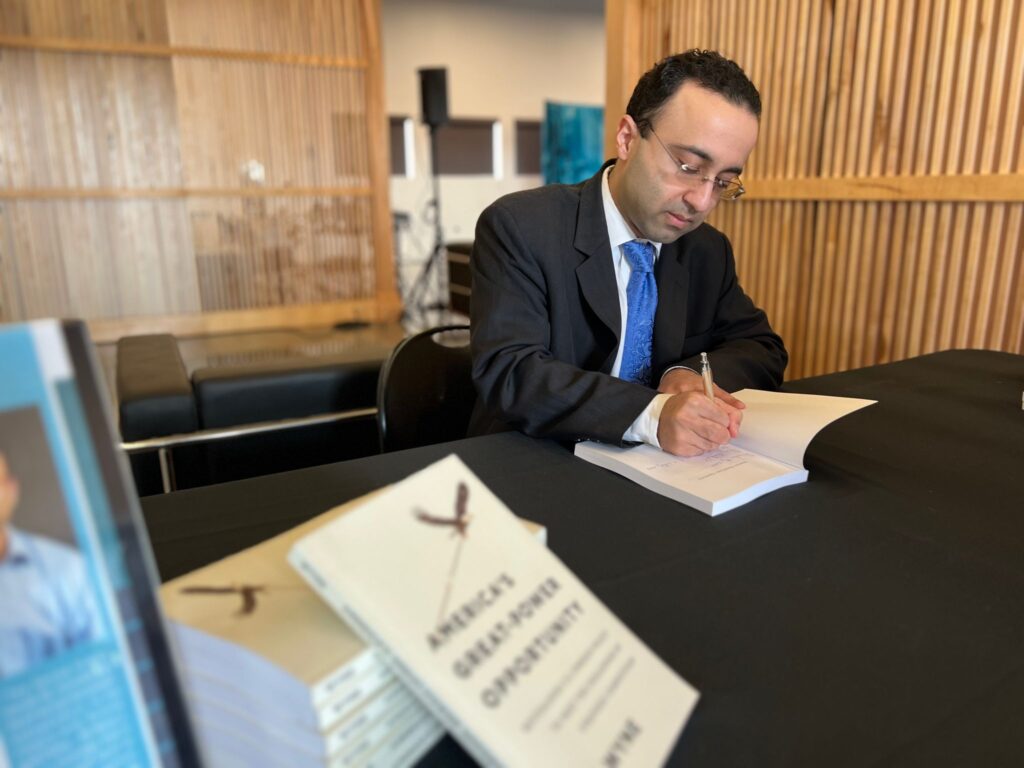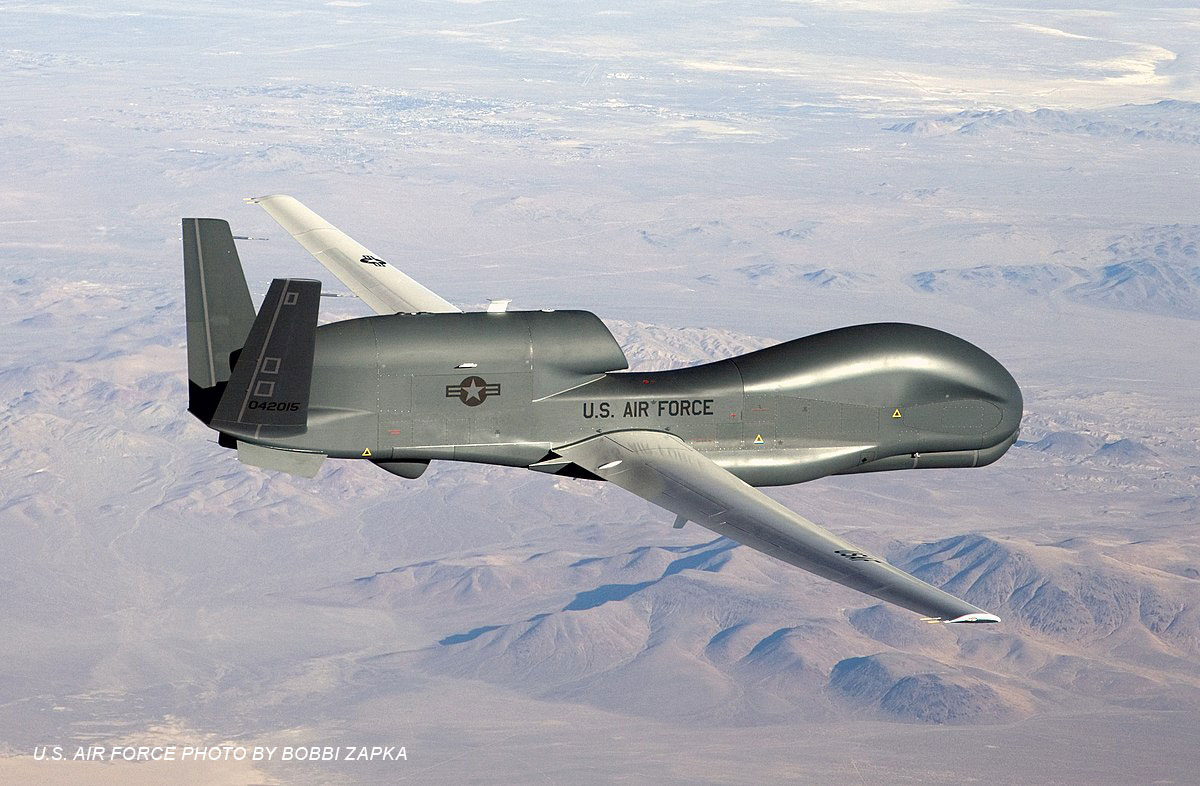America’s Great-Power Opportunity: Author Ali Wyne’s Visit to HyperWerx

On December 9th at HyperWerx, a book signing and lecture featuring Ali Wyne took place focused on his book, America’s Great-Power Opportunity, published earlier this year by Polity Press. The event was moderated by SparkCognition founder and CEO Amir Husain.
Wyne’s book (subtitle: Revitalizing U.S. Foreign Policy to Meet the Challenges of Strategic Competition) addresses the numerous geopolitical challenges facing the US in the aftermath of the dissolution of the USSR in 1991. Prior to this, strategic competition between the two superpowers had served as the intellectual and political underpinning of US foreign policy development and implementation. Indeed, whether the USSR throughout the Cold War or, before that, Nazi Germany and Imperial Japan, the U.S. has had a near-century of defining itself and its foreign policy in terms of powerful external competitors.
Wyne—who is a senior analyst with the Eurasia Group, term member of the Council on Foreign Relations, David Rockefeller fellow with the Trilateral Commission, and security fellow with the Truman National Security Project—began his remarks by observing that the term “great power competition” has been around for several decades. However, while it comes up often in Washington, DC (as well as in Moscow and Beijing), from cocktail parties to senate committee hearings, there is a remarkable level of debate about exactly what’s at stake in such a concept. Intrigued by the notable disconnect between the ubiquity of the term and interpretations of its meaning and implications, this lack of clarity motivated Wyne to write the book. “I worry that if we lean too heavily or too narrowly into great power competition, we run the risk of coming across as reactionary and defensive rather than proactive and confident,” Wyne said. “I think that China and Russia are likely to endure, and we will have to find a way to cohabitate with them in perpetuity. And so we need to find ways of preserving baselines of diplomacy and cooperation.”
Wyne’s remarks were reinforced and complemented by Pravin Sawhney, founder of FORCE magazine in India and correspondent for Jane’s International Defense Review. Sawhney noted China’s sustained focus on global influence rather than force. He pointed to the country’s commitment to gaining dominance in the artificial intelligence (AI) space by 2030 through their Digital Silk Road program, a large cyberspace connectivity project that is a key element of their Belt and Road Initiative.
In reviewing Wyne’s new book, Joseph Nye, Jr., Dean Emeritus of the Harvard Kennedy School, wrote, “Ali Wyne tackles the central question of American grand strategy and shows how the United States can answer this crucial question by investing anew in its own competitive strengths.”
Will the United States’ strengths include a global leadership status in AI and machine learning? China has also made enormous strides in the AI space. Indeed, Wyne argues in his book for the need to continue long-term technological interaction between the two superpowers despite the inherent contradictions in our political and societal belief systems. Wyne notes, though, the criticality of AI in ensuring the long-term economic advantage of the US.
“Mastering the technology of AI will be essential to economic competitiveness in this century.”
Ali Wyne’s book, America’s Great-Power Opportunity, is available in print, audiobook, or Kindle on Amazon.
Recent Posts

Redefining Contested Logistics: How AI Can Optimize the Navy’s Refueling Operations

AI empowers logistics and readiness for Army 2030

Realizing the impact of AI in autonomous warfare

Using AI to Increase Aircraft Readiness and Upskill Maintainers
